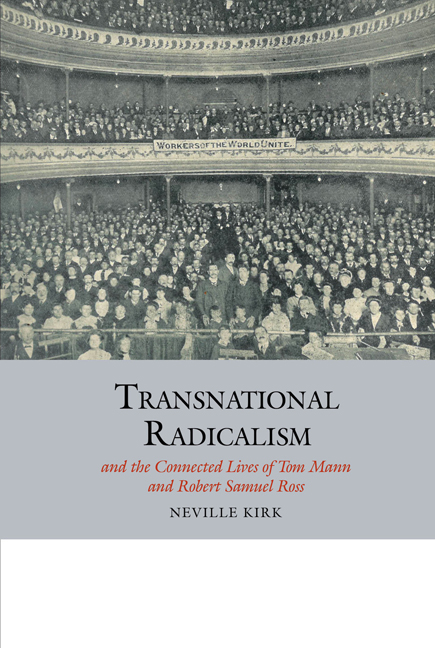5 - ‘True Womanhood’
from III - Womanhood, Whiteness and War
Summary
Introduction
Mann and Ross certainly welcomed women and girls, whether as unpaid mothers, wives and daughters or as paid workers, into the socialist movement. They saw them as an integral part of the socialist ‘family’ and its alternative system of living, working and thinking. They maintained that this political family would develop not only out of workplace and political experiences, but also, as noted in Part II, out of the daily experiences of the ‘respectable’ nuclear family complete with its community- and neighbourhood-based ties and connections. In their roles as providers, nurturers, carers, consumers, communicators, networkers and neighbours, late nineteenth- and early twentieth-century women, of course, were at the heart of both the nuclear family and the neighbourhood community. As such, Mann and Ross expected them, just as they sought themselves, to play an important part in the development of socialism.
The key question revolved not around the desirability of women's involvement in socialism, but the nature and extent of that involvement. For example, were women to enjoy equal status and participation alongside men, or were they to have a more supportive and dependent role? This question, of course, impacted not only upon socialist, but also wider labour movements.
Historical Context and Historiography
The male-dominated labour movements of Britain, Australia and New Zealand, and doubtless many other places in the ‘British’ and Anglophone worlds, adopted a variety of exclusive and inclusive attitudes and practices towards women's involvement. As demonstrated in a substantial body of labour, socialist-feminist and ‘patriarchy-first’ literature, these positions included, for example, the hostile and exclusionary practices of unionised (and non-unionised) male craft and skilled workers towards women's involvement and competition in the labour market. Yet in the event of the failure of their purely exclusionary tactics, or during times of national need, such as during the ‘total’ conflicts of World War I and World War II when there developed unusually high demands for labour, these self-same exclusive workers could demonstrate pragmatic, albeit reluctant, acceptance of women as paid workers and union members. At the same time, however, they stipulated that there must be a return to ‘normalcy’ once these emergency conditions had passed. Strategies also included the more inclusive practices of the mass, largely non-skilled unions in which the issues of apprenticeship and other forms of control over the supply of labour did not apply to anything like the same extent as among the skilled.
- Type
- Chapter
- Information
- Publisher: Liverpool University PressPrint publication year: 2017



